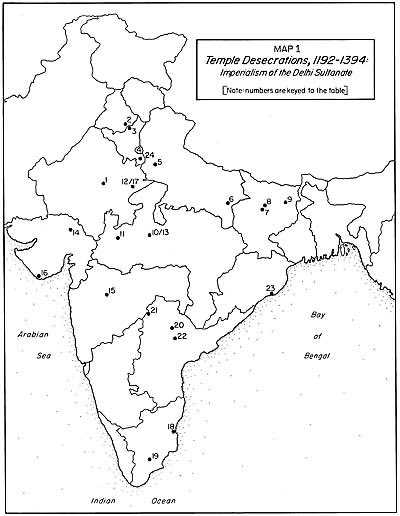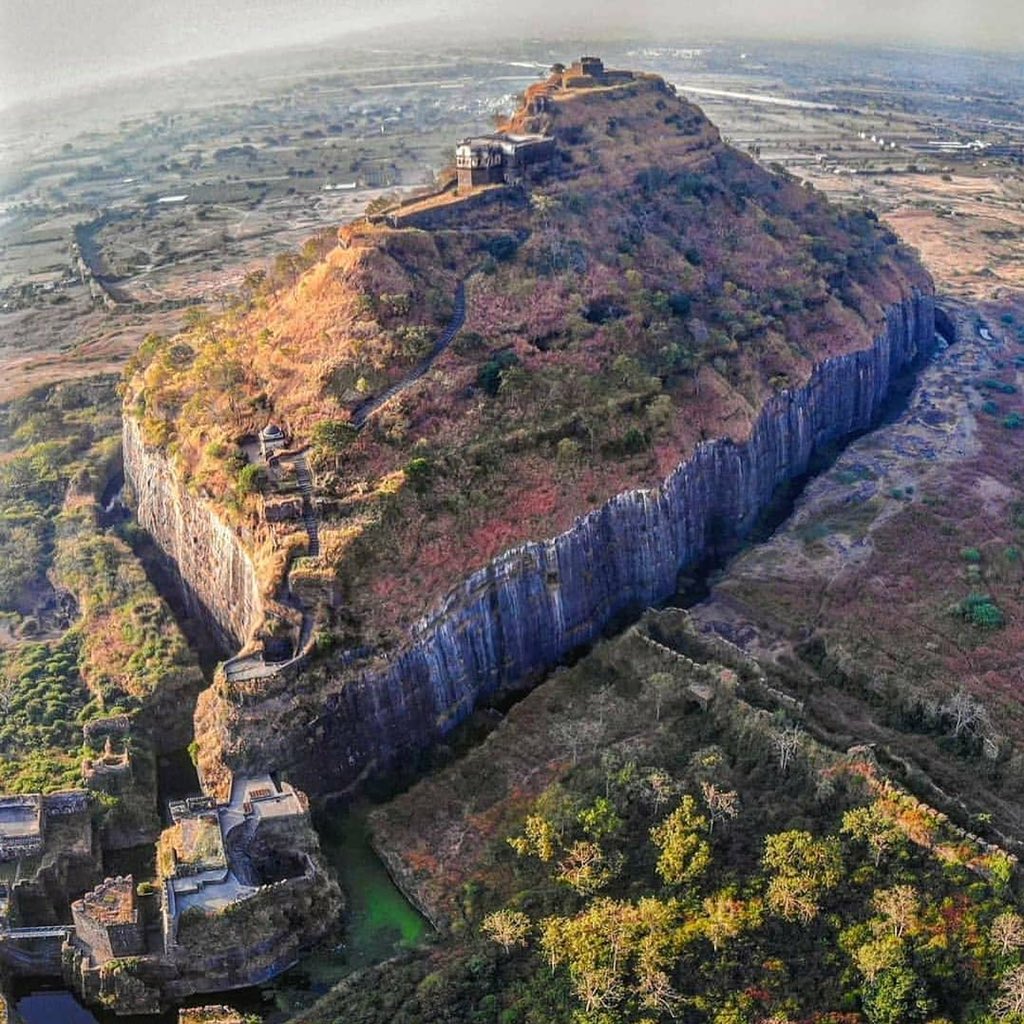
Hello #twitterstorians! Yesterday's 🧵 was a flyover of the #Delhi Sultanate and the early history of rule by Muslims in #India. Today, I, @StevenMVose, will dig into the reign of Sultan Muhammad bin #Tughlaq (r. 1325-1351) and discuss how #Jain sources give us an alternate view. 

Ala' al-Din Khalji's death in 1316 threw the empire into turmoil for four years. Many Delhi elites supported Khusraw Shāh. Ala’’s Warden of the Marches, Ghiyath al-Din Tughluq, saw the Indian convert as a usurper and marched on Delhi.
Khusraw’s supporters saw the Tughluqs as uncouth “nomads” of uncertain ethnic background and zealots.
Ghiyath positioned himself as the restorer of Ala’’s glory and set about further expanding the empire. His son, Malik Jawna, retook Devagiri (renamed Dawlatabad), conquered the Kakatiyas at Warangal (Telangana), and even held Madurai. 

Along the way, he destroyed several temples. Later, he paid to restore many of them. While #HinduNationalist historians claim 10K+ temples were destroyed, Eaton shows there is evidence only for 24 between 1192-1394. What accounts for the difference? 

Nationalist historians read Persian sources a factual accounts “from the horse’s mouth,” w/o regard for rhetoric. Eaton’s research shows that only politically significant temples were targeted. Davis shows this was common in warfare even between Hindu kings.
While #Jain sources would add to this number, it is clear that far fewer temples were destroyed and that religion was not the primary motivating factor in destroying temples, which we see were targets for plunder. (I’ll discuss Jain temples tomorrow.)
Malik Jawna appears to have contrived his father’s death, taking power in 1325 as Muhammad bin Tughluq (MbT). He continued to expand the empire, reaching its zenith 1326-1334. 

One of the practices that MbT continued from Ala’ al-Din Khalji was to employ and promote a number of Hindus, Jains, and other non-Muslim Indians. This put him afoul of many of the Turkish Muslim elites of Delhi.
Ziya al-Din Barani (d.1357) complained that under MbT, “Hindus are held in the highest esteem,” wear robes of honor (khilat), occupy “responsible offices including governorships,” and “carry on open and unrestrained…disseminat[ion] of their teachings.”
As Barani is one of our chief sources for the history of MbT, it is unsurprising that our reception of him is of a zealous, murderous tyrant whose crazy schemes nearly led the empire to ruin.
MbT is infamous for two schemes: 1) the “attempt to move the capital to Dawlatabad” and 2) the attempt to introduce token currency 💰
Devagiri/Dawlatabad was a fortress that offered MbT a base to administer the newly acquired southern parts of his empire. He forced many Delhi elites to relocate there. Persian sources tell of those refusing to go getting dragged there. 

Barani paints an image of all Delhi abandoned while “Muslim graveyards” sprung up around Dawlatabad as people pined away for what had once been the finest city in the Muslim world. Meanwhile, he says, “rustics” were invited to move to Delhi—who were clearly Hindu (and Jain).
After a few years, MbT abandoned the plan and allowed people to return to Delhi. It seems that Delhi was not abandoned, nor was there a plan to do so. Instead, the elites who already didn’t like him resented being sent to this 2nd administrative center.
Jinaprabhasuri (JPS), who went to the Delhi court in 1328, describes a city with a large, thriving Jain community. MbT granted them a special quarter (sarai) in the city for 400 families. (I’ll say more about them tomorrow.)
The other scheme was the introduction of token currency. This led to widespread counterfeiting that supposedly nearly bankrupted the treasury as MbT had to pay holders in silver billon coins.
What is not normally considered is that this coincided with 1) a famine, and 2) a plan to raise a HUGE army to fight Chaghadayids in Khurasan, who oft raided Sultanate territories. With so much land under direct control, they could not simply plunder temples and merchants.
A generation earlier, Ala’ al-Din’s answer to a large standing army was to institute price controls on staples like grain. This squeezed merchants who moved goods from countryside to city, slowing the supply making it to Delhi.
Token currency was meant to address this very problem. Those who were cashing in the token (& counterfeit) coins for billon coins were largely merchants. Still, claims of nearly bankrupting the treasury appear, as we’ll see, exaggerated.
MbT’s business-friendly solution would have made merchants happy (and rich..er). Given his granting opportunities liberally to non-Muslim Indians and to Muslims from outside N. India, like the Moroccan traveler Ibn Battuta, we can question Barani’s take on him.
Tomorrow we’ll look at Jinaprabhasuri’s encounters with MbT and see how Jain sources give us a whole new view of the sultan. Thanks and Stay tuned! 👋
• • •
Missing some Tweet in this thread? You can try to
force a refresh




